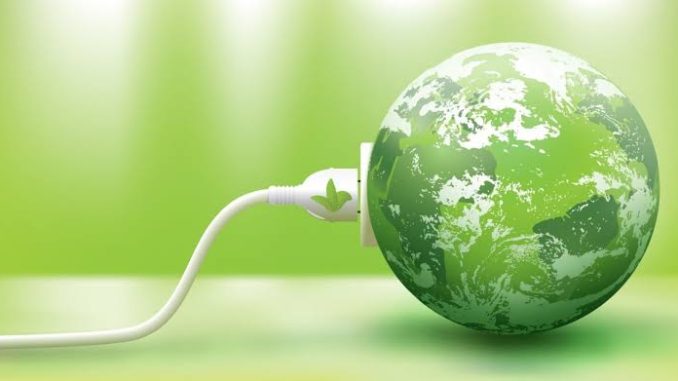
1. Renewable Energy Technologies: Leading the Charge
One of the most significant advancements in sustainable tech is the rise of renewable energy sources like solar, wind, and hydropower. Innovations in these areas have made green energy more accessible and affordable than ever before. Solar panels, for example, have become increasingly efficient and cost-effective, allowing homes and businesses to harness clean energy. Similarly, advances in wind turbine technology have improved their efficiency and durability, enabling them to operate in various environments and reduce reliance on fossil fuels.
Battery technology has also seen remarkable progress, making it easier to store renewable energy for later use. Innovations such as lithium-ion and solid-state batteries, as well as emerging hydrogen fuel cells, are set to revolutionize energy storage. As storage technology improves, renewable energy sources can power communities consistently, even during non-productive hours, which will further lessen dependency on traditional energy sources.
2. Sustainable Agriculture: Feeding the World Responsibly
Agriculture is another sector where sustainable technology is making a profound impact. With the global population expected to reach nearly 10 billion by 2050, feeding the world sustainably is critical. Innovations in precision agriculture, like drones, sensors, and AI-driven analytics, allow farmers to monitor crop health, optimize water use, and reduce pesticide application. These technologies not only help increase yields but also decrease the environmental footprint of farming practices.
Vertical farming and hydroponic systems also represent promising solutions. These methods use significantly less water and land, produce minimal waste, and allow food to be grown closer to urban centers, reducing the carbon footprint associated with food transportation. Companies such as AeroFarms and Plenty are at the forefront, proving that it’s possible to grow large quantities of food in small urban spaces using technology.
3. Eco-Friendly Manufacturing: Reducing Waste and Pollution
Manufacturing is notorious for its environmental impact, from greenhouse gas emissions to vast amounts of waste. However, sustainable tech is driving change in this field. Additive manufacturing, also known as 3D printing, allows companies to create products with minimal waste. By adding material layer by layer, 3D printing drastically reduces the raw materials needed, energy consumption, and the waste generated during production.
Automation and smart factories are also leading to more efficient use of resources. Internet of Things (IoT) devices and AI analytics allow manufacturers to monitor their energy usage and reduce waste in real time. Using data to make processes more efficient can help cut costs while decreasing the ecological footprint.
4. Electric Vehicles (EVs): Revolutionizing Transportation
The transportation industry is one of the largest contributors to global greenhouse gas emissions. Electric vehicles (EVs) have emerged as a viable solution to curb emissions and reduce dependence on fossil fuels. Companies like Tesla, Rivian, and legacy automakers are investing heavily in EV technology, pushing the limits of battery efficiency, range, and affordability. As EV infrastructure improves with the addition of more charging stations and renewable energy integration, the adoption of electric vehicles is expected to rise significantly.
In addition to EVs, autonomous driving technology is also being developed to make transportation more sustainable. Self-driving cars can optimize routes to reduce fuel consumption and improve traffic flow, while electric public transportation systems further lessen the carbon impact of commuting.
5. Smart Cities: Integrating Sustainability into Urban Life
The concept of smart cities focuses on using technology to create urban environments that are not only more efficient but also more sustainable. IoT and big data are critical components of these initiatives, allowing cities to manage resources more effectively. Smart lighting systems, for example, can dim or turn off street lights based on real-time usage and natural light, significantly saving on electricity.
Water management is another area where smart city technology is making strides. Advanced sensors can detect leaks in water pipes, monitor water quality, and optimize irrigation systems in parks and gardens, ensuring minimal wastage. Additionally, waste management in smart cities utilizes AI to plan waste collection routes, recycle more efficiently, and reduce landfill contributions.
6. Digital Solutions for Waste Reduction: Circular Economy and Beyond
The digital revolution has created tools that support a circular economy, where products and materials are reused, repurposed, and recycled to reduce waste. Platforms such as digital marketplaces for used goods, repair services, and even digital tracking systems for product lifecycles encourage people and companies to reduce, reuse, and recycle.
Blockchain is emerging as a tool for enhancing transparency in the supply chain, allowing consumers and companies to track a product’s journey from raw material to finished item. This transparency helps to ensure that materials are sourced sustainably and ethically, encouraging better consumer choices and promoting responsible business practices.
7. Artificial Intelligence and Big Data: Paving the Way for Future Innovations
Artificial Intelligence (AI) and big data are at the core of many sustainable tech advancements. By analyzing massive amounts of data, AI can identify patterns and predict environmental impacts, helping companies make better decisions. For instance, AI can optimize energy usage in data centers, manage resources in smart cities, or assist in conservation efforts by predicting animal migration patterns and monitoring deforestation in real time.
Moreover, AI-driven climate models are being developed to better understand the consequences of climate change and explore possible solutions. These tools provide critical insights that can guide both policymakers and businesses in their sustainability strategies.
Conclusion
Sustainable technology is no longer just a vision for the future; it’s an active and growing part of our world today. From renewable energy and electric vehicles to smart cities and sustainable agriculture, technology is transforming industries and daily lives. The combination of innovation, environmental responsibility, and ethical practices has the potential to create a healthier planet and ensure that future generations can enjoy a balanced, sustainable world.
As we move forward, continued investment in sustainable tech will be crucial in tackling the pressing environmental challenges we face. By embracing these technologies, we are paving the way toward a greener, more resilient future.